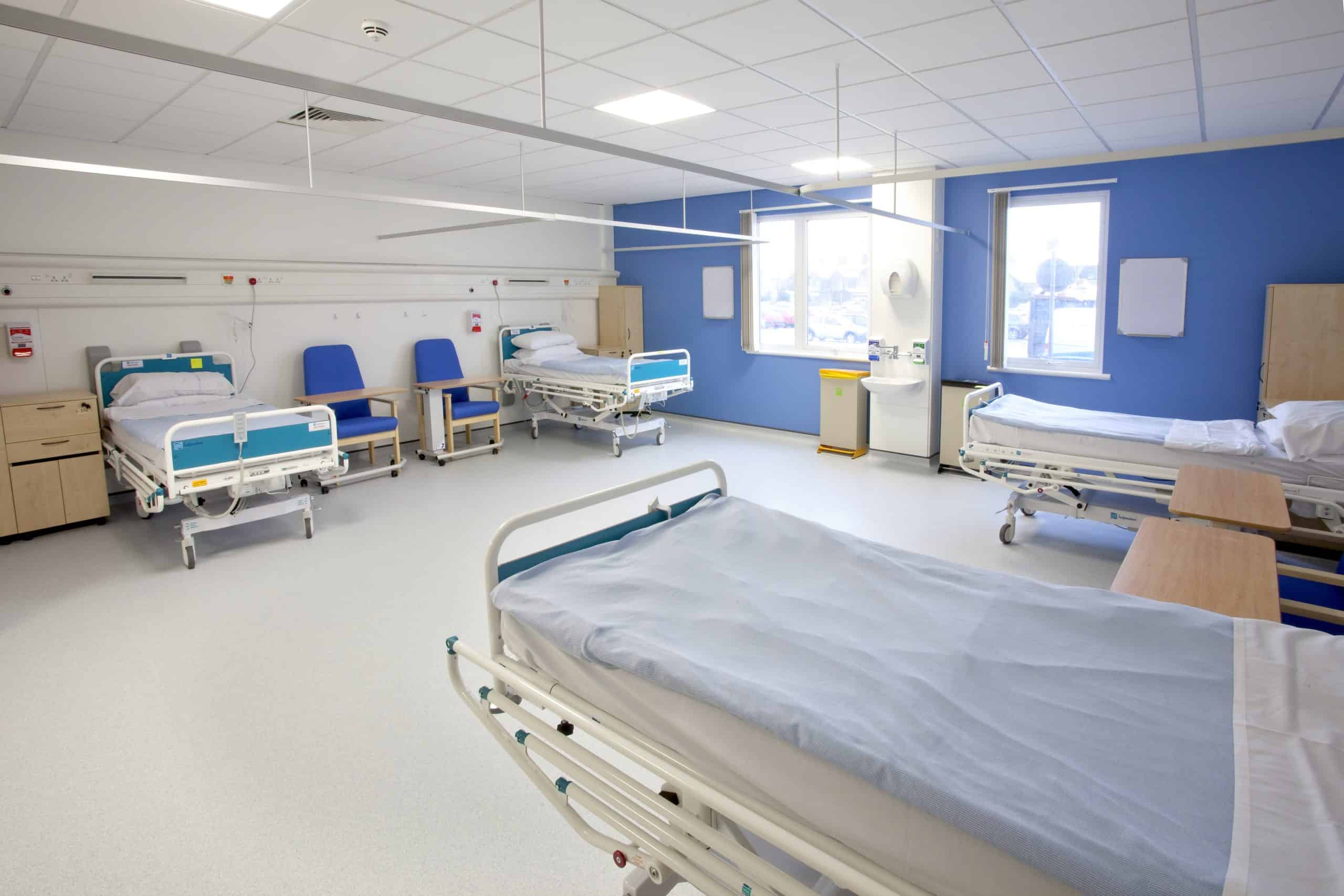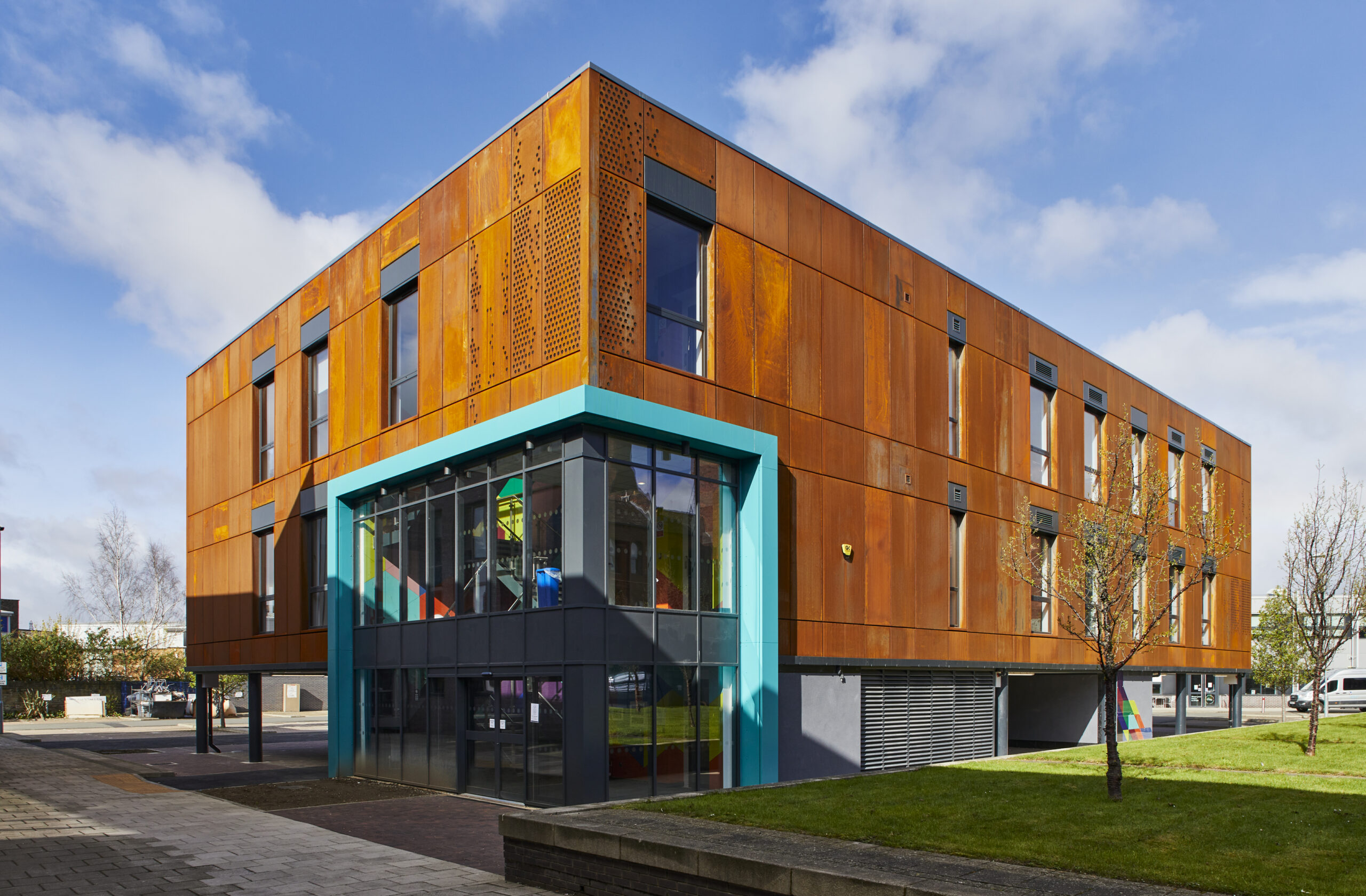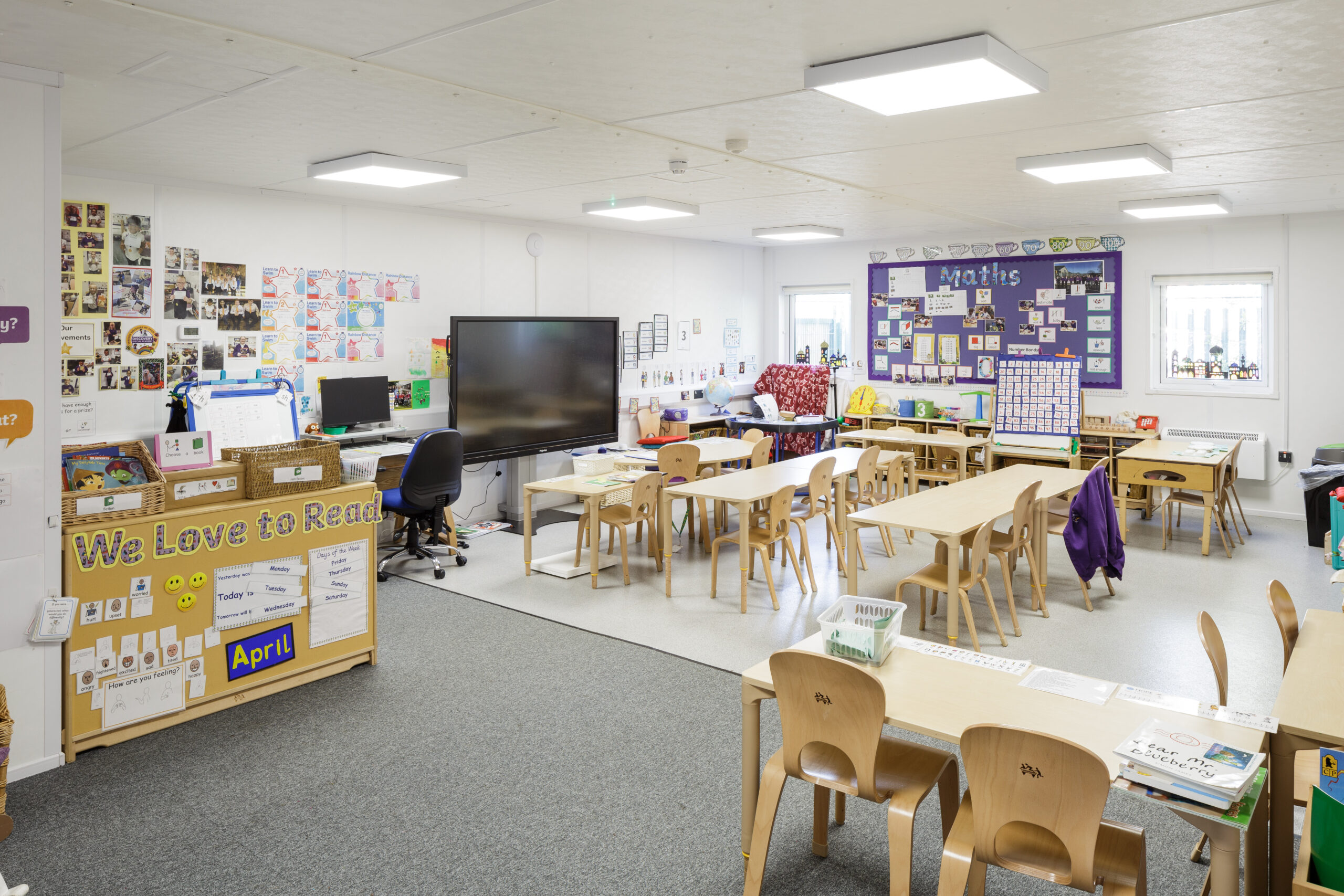The continued release of greenhouse gas emissions is posing serious risks to human health. According to the World Health Organisation (WHO), climate change is one of the greatest health challenges of this century, enabling the inception and spread of infectious diseases and leading to a rise in non-communicable diseases worldwide.
As a sector already facing immense pressure from a growing service demand, healthcare is likely to experience further strain across the board, as pollution and extreme weather events drive up cases of physical and psychological illness. Adopting a greener approach to healthcare construction to reduce its contributions to carbon emissions is therefore a core ambition of the NHS and other healthcare organisations.
However, for this to be achievable, hospitals and other healthcare facilities need to be procured, built and run sustainably. The solution? Modular construction, one of the fastest and most reliable ways for the sector to expand patient capacity with high quality facilities that won’t cost the earth.
Creating a sustainable opportunity
Despite the many responsibilities the NHS is required to juggle, it remains committed to reducing its carbon footprint. As such, offsite construction methods, such as modular construction, are a welcome opportunity for driving lasting change. With building components manufactured inside a controlled factory environment, modular construction grants the NHS and other healthcare organisations a far greener means of acquiring new facilities and significantly reduces the need for equipment, workers and materials onsite, cutting down transport emissions as a result.
This is supported by research including one report that demonstrates that modular construction requires up to 80 per cent less vehicle movements than traditional construction. The sustainable procurement and application of materials only adds to modular’s green credentials. Timber, light-gauged steel and other responsibly sourced goods are the pillars of modular construction, helping to limit the embodied carbon of the buildings produced.
At Premier Modular, sustainability is considered on an even deeper level. The recycling and reuse of offcuts ensures zero waste goes to landfill, as wood waste produced can be converted into biomass fuel and plasterboard offcuts can be recycled into usable plasterboard. Such initiatives are crucial for keeping emissions to a minimum and will empower the health sector to contribute to the circular economy too.
Green, clean and pristine
Faced with the balancing act of rapidly delivering a high standard of care services and fulfilling net zero commitments, the health sector urgently requires greener buildings that do not compromise on quality. Modular buildings are the perfect solution to this problem. The precise, machine manufacture of building parts provides an exceptional finish that ensures an immaculate internal environment. Producing building parts inside a factory, away from external variables such as inclement weather, only maximises the quality of modular solutions.
Coupled with the speed at which modular buildings can be delivered, this precision is of huge advantage to the health sector, allowing organisations to expand rapidly whilst continuing to provide a high level of care.
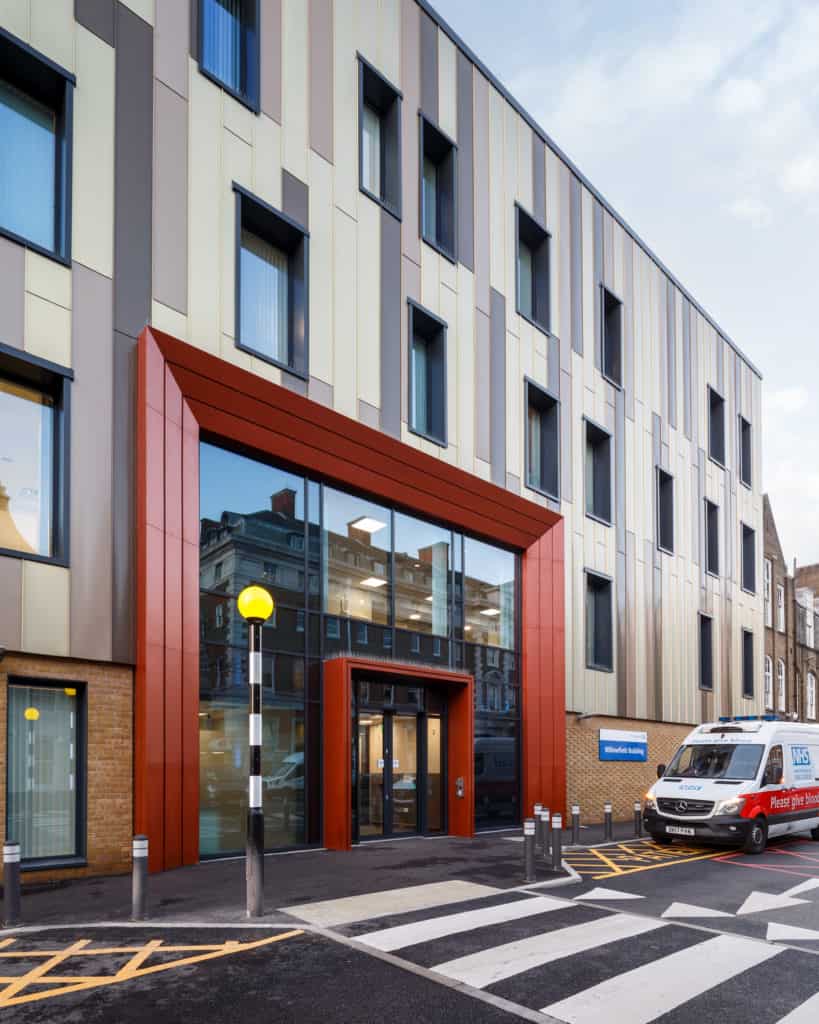
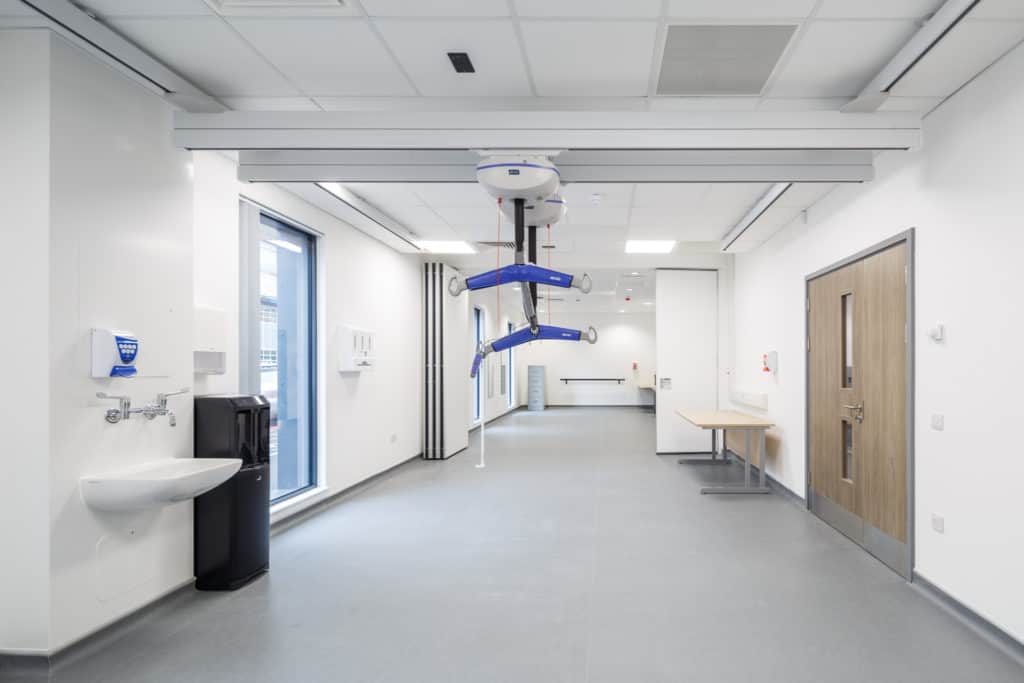
King’s College Hospital benefited from modular in this way, securing a cutting-edge facility from Premier Modular that provided a high-quality clinical environment for its patients. Creating this modular building through precision manufacturing ensured the facility had a tight building envelope, which improved air permeability and controlled heat loss. This provided a stable environment for patient recovery and will additionally help to keep energy costs down.
Premier Modular’s design-led approach also meant the new building balanced the specifications and needs of the Hospital with the incorporation of sustainable technologies. The facility for King’s College Hospital featured a green roof, solar panels, LED lighting with daylight dimming controls and a radiant panel system powered by air source heat pumps for increased energy efficiency. Including such measures helped to cut the carbon emissions associated with the building by half and ensure the facility could support the Hospital’s sustainability commitments in the years to come.
Supporting a greener future
According to a report by Healthcare Without Harm, the health sector would be the fifth greatest emitter of carbon emissions in the world if it were a country. Decarbonising healthcare is, therefore, an essential aim in the global battle against climate change and a goal that the sector is working hard to achieve.
However, this ambition does require adaptation. Acquiring new facilities sustainably is a strong step in the right direction and can be accomplished by choosing offsite construction methods such as modular building.
Providing cost certainty, energy efficiency and specialised buildings that can be reconfigured or reused to suit the needs of each organisation, going modular is one of many ways the health sector can unlock its green potential.
To explore the sustainable benefits of modular solutions in more depth, take a look at our rental and permanent projects.

